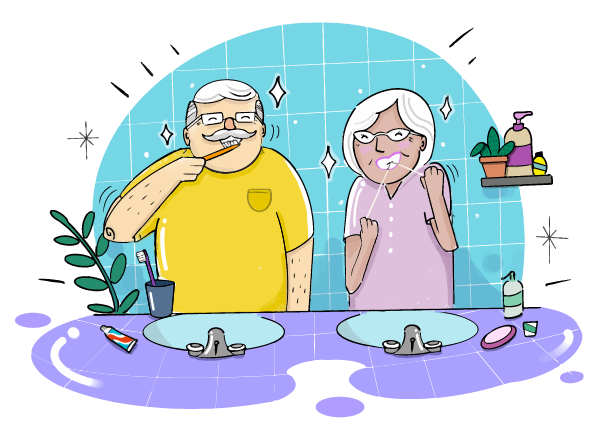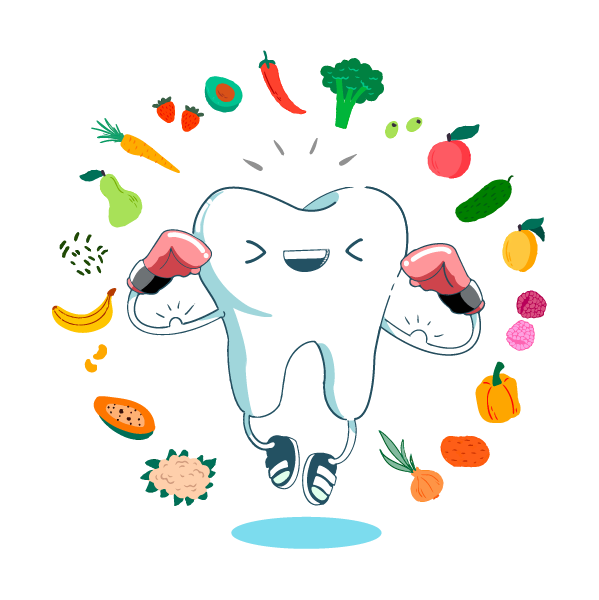
September is Healthy Aging Month, a perfect time to take a look at what habits we need to ensure we have a healthy aging mouth.
We know that having good oral health is key to staying healthy overall. This is why keeping our teeth and mouth healthy is important–regardless of age.
As we grow older, our likelihood and susceptibility to certain medical conditions increase. This includes various conditions linked to oral health issues, such as gum disease, which is known to be connected to diabetes, heart disease, stroke, and more.

Common dental problems among adults 65+:
- Untreated cavities: 1/5 people
- Loss of all teeth: 1/5 people
- Gum disease: 2/3 people
What can you do to prevent these issues?
Brush and floss
Tried and true— a daily routine of brushing (twice for two minutes with fluoridated toothpaste) and flossing (using the type of interdental cleaner that works best for you) is your best defense against cavities, gum disease, and tooth loss.
A clinical study completed in 2020 demonstrated that people over 65 who identified as flossers had a lower number of sites with bone and tissue (gum) loss. Also, those who flossed had fewer cavities and more teeth. Note: This paper showed the positive effect of less tooth loss over a 5-year period.

Nutrition
Strong and healthy teeth are important for eating a varied and nutritious diet! Remember that eating lots of fruits and vegetables that are rich in vitamins and calcium helps keep your teeth strong.
Seek care for dental problems
Losing teeth can lead to more dietary restrictions (selecting easier-to-eat foods that may not be as nutritious), trouble with speech, and even changes to our appearance (face shape). Seek advice from your dental care team on implants, bridges, or dentures to replace and support missing teeth.
If you notice pain, sensitivity, discoloration or other changes to your teeth and gums, schedule a visit with your dentist to get treatment before conditions worsen.
Being seen by your dentist sooner can help you avoid more painful or costly treatments in the long run. It’s also important to keep regular check-ups and cleanings with your dentist – they are the experts when it comes to keeping your smile (and you) healthy!
This information in this post is for general educational purposes only and does not warrant or represent any information as related to health as specifically appropriate for you. It is not intended to be medical advice or replace the relationship that you have with your health care providers. You should always seek medical advice on any diagnosis or treatment from a qualified health care provider. The information is provided “as is” without any representations or warranties, express or implied.






